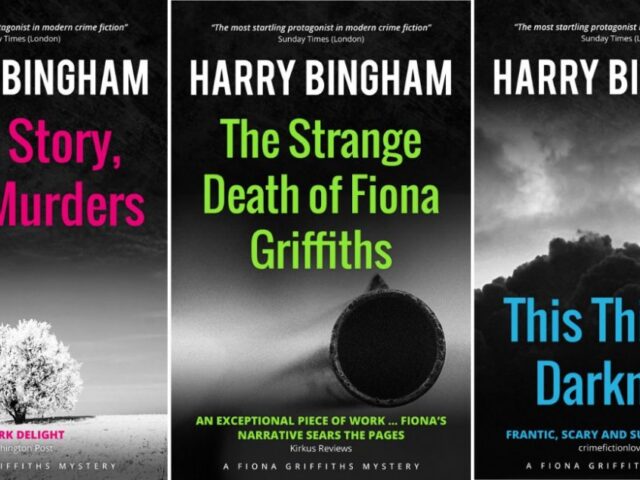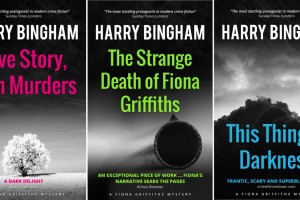The telling detail
Alert readers will have noticed that there was an election in Britain yesterday, one that produced an emphatic result. Boris Johnson – love him or loathe him – was the frontman of that campaign and that success. And the funny thing is – I know him. Only a teeny-tiny bit, admittedly, but we were at college together, a year or two apart, but still close enough to know each other by sight.That’s the intro, but this isn’t an email on politics. It’s one about writing. And it struck me that almost the only memorable moment of the whole election campaign was a curiously personal one.Boris Johnson was touring a hospital, with a swarm of cameras following him. A local journalist, from the Yorkshire Post, asked him to look at a photo. The photo was of a boy, with suspected pneumonia, lying on a hospital floor, because there was no bed for him.That doesn’t strike me as a particularly tough situation for a politician. You look at the photo. You manage a frown of concern and sympathy. You say that’s terrible. Then you say (if you’re one of the rogues who have been in power), “We have to look into that. Thanks so much for bringing this to our attention.” Or you say (if you’re one of the rogues in search of power), “That just shows why the whole system needs reform.”Johnson took neither of these well-trodden routes.He refused to look at the photo. He kept trying to fire off his “Get Brexit done” lines. He looked uncomfortable at the prospect of the emotional encounter expected of him (concern, human sympathy, frustration at a system that didn’t deliver.)The journalist pressed the point: here’s a photo, look at it.Johnson tried a little more to evade, then actually took the photo from the journalist’s hand and pocketed it. “Now, finally, we can talk about Brexit again,” he said, in effect.Taking someone else’s phone is hardly an assault, but it is a bit odd. It smacks of the alpha male, the bully … except the eight-year-old version of that. A kind of playground dominance.Why did that little scene make a noticeable ding on a busily argumentative election? Or, transfer that little vignette to the pages of a manuscript, why would it work so well there? Why would a scene like that, properly written, seem to rich and shimmering with life?While you ponder, here’s another Johnson-anecdote.My father was a judge at the very top of his profession. (Here’s his Wikipedia entry, if you’re curious.) Because people at the top of public life tend to bump into each other, my father knew Boris Johnson too. Not well, but a bit.And at one point they were both up in Scotland, in some rattly castle, at a conference on – I don’t know, the sort of conference people like that go to. My mother was also there. The castle was close to the sea. Johnson had a car with him and my parents didn’t. A trip to the sea was planned. Boris Johnson offered to collect them and take them down there.And –He didn’t show up.He did go to the sea, yes, but he didn’t drive the one minute necessary to collect my parents. My father then must have been seventy. My mother not much younger. And back then, Boris was just a jobbing MP with a large public profile. My father was the most senior judge in the country.The injury done was hardly very extensive. My parents waited for their ride for about twenty minutes, then decided Johnson wasn’t coming and called a taxi instead. When they were next in Johnson’s company, he didn’t apologise. Didn’t refer to the broken promise – which my father says was very clear and explicit – in any way.Two tiny anecdotes, about a man who is now emphatically in charge of the British government.What do we make of these things? Not as students of politics, but as writers of stories. What do we make of these things?Well, look, the obvious way to parse these episodes is:Episode 1: Johnson has a touch of the sociopath. He can do fake bonhomie, but he can’t do actual human sympathy. By pushing the point, the Yorkshire journalist found a way to unpeel Johnson’s mask, to show us the real, frightening human.Episode 2: Johnson is a selfish idiot who left a pair of distinguished and somewhat elderly people waiting for a lift to the sea.But life is more complex than that, isn’t it? Perhaps a better reading of these episodes is:Episode 1: Johnson was in the last stages of a tremendously long and exhausting election campaign. His minders were telling him to get on camera and talk about Brexit. So yes, he messed up, not very severely. Had he seen an actual little boy on a hospital floor, maybe he’d have been as caring and empathic as some Princess Diana / Nelson Mandela mashup.Episode 2: Johnson is famously not a details man. He’s disorganised, chaotic – and he just forgot. Whoops. No big deal.And that ambiguity has a lot to do with why those episodes grip us. Because there’s no one way to read them, indeed because both readings have a kind of validity, we have to study them. We have to consider them. We feel (A) that something personal and significant has been revealed, but also (B) it’s not quite clear what has been revealed. The quest to understand pushes the reader to turn the pages, but that quest also pushes the reader further into each page. You can’t risk skimming the text, because to skim might cause you to miss a detail that switches or adapts your view.The very best novels often have a flickery quality, which isn’t properly resolved until the end.So, in Pride and Prejudice, the reader is constantly trying to understand Darcy. Is he a brute? Or just clumsy? Sincere or arrogant? If you look back at some of the greatest scenes in the book – the fabulous scene where Darcy proposes for the first time and Elizabeth forcefully refuses him – you see the constant flicker. Yes, he seems arrogant. But yes, you can see his point of view too. As soon as you think have a stable view of the human, the picture shifts. You end the scene with more data on Darcy, and perhaps an opinion, but you’re still not sure. You have to read on.And naturally, in a great book, that ambiguity only finally resolves at the end. Elizabeth’s life and family are in crisis! Darcy rides to the rescue! He is vastly generous! He has been the soul of honour throughout! Love and happiness beckon!And that’s why, I think, that a lot of “show don’t tell” advice is just wrong. The advice normally says things like, “Don’t say that your character is angry. Show them being angry.\" They advocate writing like this: \"Lydia’s face turned pale and her voice quivered with rage as she struck the table and …\"Yeugh.It’s all too direct. Devoid of multiple interpretations. (Our show don\'t tell advice is here.)The best details, the best micro-scenes, aren’t ones that emphatically reinforce a given point. They’re ones that can be read in two ways, or ten. That force the reader’s attention, the way life so often does.For what it’s worth (and, remember, I kinda knew Johnson at college, years before all of this), I think all of our explanations of Johnson’s behaviour are correct. All of them.Lack of human empathy? Yes. Selfish? Yes. Pressure of a massive election campaign? Yes. A minor forgetting by someone known for it? Yes. All those things and more.As for how you mix those things up, how they fall out in practice – I don’t know. And if a political leader is a bit light on the personal empathy stuff, how much really does that matter? Churchill was a drunk. Kennedy was a philanderer. Those things didn’t make them terrible leaders.That’s it from me. I have just invented a new foot bath involving a small bathtub full of warm porridge (See picture in the header photo). I can’t wait to try it out – and I shan’t think about politics once.But what do you think? I don\'t mean about politics, though you can loose off on that if you really want. What little details or scenes really work for you? Which have that rich flicker of ambiguity? What have you written that you feel proud of in this respect? Let\'s dive into my porridge bath and have a Heated and Porridgy Debate ...














